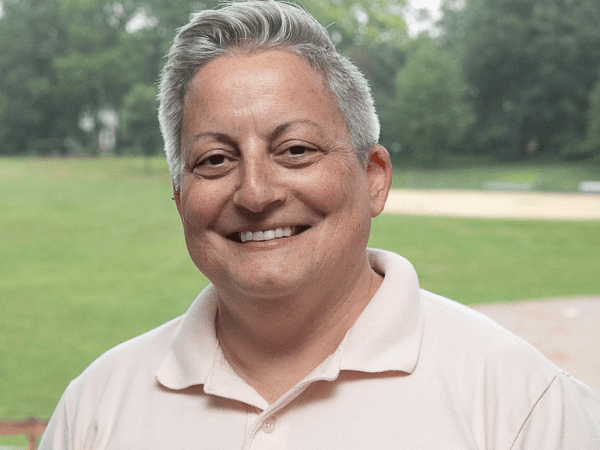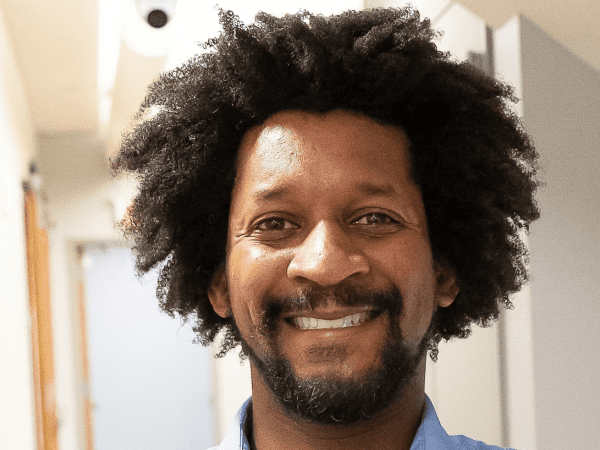Each year, Village Green sends a questionnaire to the candidates for South Orange-Maplewood Board of Education to answer. We post answers by question topic. Candidates are asked to answer as individuals, not as a slate. They are also asked to keep answers to no more than 500 words each. Here is the Q&A for all seven candidates on the annual budget:
VG: Following last year’s budget, which included painful cuts to staff and materials, some board members have asked for a return to monthly budget reports to the BOE and public, rather than keeping budget discussions within the Finance, Facilities and Technology (FFT) committee until shortly before the introduction of the budget to the full Board. How do you believe the budget process can be improved? Would you advocate for monthly reporting to the BOE and the public throughout the year? Or do you believe the current process is more efficient?
Jeff Bennett
JEFF BENNETT
The 2024-25 budget was a debacle across several dimensions:
- The scale and pain of the cuts and deferments, including 28 RIFs of district employees, 70 paraprofessionals, supplies, and deferment of important programs.
- The business administrator and superintendent could not explain why we were in a crisis while almost all other aid-gaining districts were stable.
- The BOE itself had no idea that a painful budget was on its way.
- The specific cuts that were chosen, such as eliminating the Head of Guidance.
So, after 2024-25 we’ve got to do some things differently.
We also have to act with urgency. Although I don’t predict a deficit as bad as 2024-25, I think we will have budget problems in the future due to our topping out at 100% of our state aid in 2024-25 and the need to fund the new teacher contract. Although the superintendent makes the budget, the superintendent’s budget has to be consistent with the BOE’s district goals and policies, so the BOE has a budget-shaping role. Therefore, preventing future deficits has to start with policy changes now.
An attempt at multi-year budgeting is necessary, with a focus on the more volatile revenue streams, such as federal aid. Multi-year budgeting should also consider what the district will do to adapt when one-shot revenue gets depleted, like when the district and BOE used the money from selling our busses to pay for operating expenses. On the spending side, multiyear estimates must attempt to extrapolate salary increases, healthcare, and out-of-district tuition increases.
Monthly budget updates do no harm, but this isn’t a significant improvement. The district’s “deliveries” of money from the tax levy and state aid are highly routine, so revenue-side updates would not produce information that would induce changes in the budget. The district does face unexpected expenses, but the BOE is already informed of emergency expenditures.
It would be more informationally useful to create Budget FAQs, like Montclair.
For transparency, Business Department documents like Cost Center View, Building-by-Building expenses, and Bussing Capacity Report should be released earlier in the budget season.
However, the reforms outlined above are only processes, and getting the budget in balance requires more revenue and more careful spending.
To bring in more revenue, I would support utilizing our physical expansion to improve education and our budget, by trying to bring in more students with special needs into the district, bringing in PreK students, and participating in Interdistrict Choice. I would also raise awareness of how unfair NJ’s state aid formula is to towns like SOMA that lack non-residential property.
On the spending side, I believe that the cost of PreK bus routes must be examined because some PreK bus routes have only a handful of riders. We will continue PreK bussing as a program, but we can be more strategic in how we assign students to PreKs so that not every single PreK gets a bus.
I would also consider moving the BOE election back to April to get around the tax cap, although I would not vote to move the election without a proper information-building and consultation process for the public.
______

Deirdre Brown
DEIRDRE BROWN
Efficient or not, clearly the current budget reporting process is not working. More transparency and improved oversight processes are clearly needed, as demonstrated by the $9.5M deficit not made public until winter 2024.
I support monthly reporting (including cost estimates and actual spend) to the BOE and the public throughout the year. As a member of the board I would advocate for the regular publication of detailed budget reports that are easily accessible and understandable for community members. This can include hosting budget town halls to provide context for spending decisions and gather community input.
There has been little explanation as to how we entered into the $9.5M deficit. Because of the lack of confidence in our estimations, I would like our district to consider zero-based budgeting, at least for the near term, instead of the traditional budgeting approach, which uses the previous budget as a baseline. This would allow us to reassess all our budgeting assumptions for accuracy.
The Brown, Bennett, and Kapadia slate anticipates a continued budget constrained environment. While most of our costs are fixed, we commit to:
- Prioritizing classroom investment. Analyze the budget to identify areas where the educational payoff is weak relative to the spend and channel as much of the budget as possible into the classroom.
- Strategically assessing priorities and avoiding blanket programming reductions. The budget passed in the spring of 2024 was essentially an across-the-board 20 percent cut to all departments (with the exception of the Central Office). This disproportionately impacted certain areas, such as the arts, which already experienced lower funding to begin with.
- Exploring revenue generation options. This could include grants for offering Career and Technical Education programs at the high school and creative use of our extra classrooms.
- Exploring transportation cost savings. We can be more efficient with all our bussing. A glaring example of inefficiency is pre-K bussing. We currently bus to 8 pre-K schools and pay for a full bus even if it only has a handful of students on it.
- Improve BOE oversight and accountability processes. The BOE’s standard operating procedures related to communication and oversight need to improve and board members need to hold themselves accountable. This was exemplified with the lack of accountability and oversight of a $42K contract to create the high school’s master schedule. The contractor failed and there were real, lasting consequences for Columbia high school students (and much stress put on our counselors), yet there was no discussion of how the BOE could improve its own internal controls, including communication controls, as a result.
______
BETHANY JOSEPH

Bethany Joseph
The biggest concern at this time is that we do not have a business administrator or assistant business administrator on staff. The district has a new part-time interim business administrator managing the department along with administrative staff. To fix the budget process, first and foremost we must rebuild that department, especially as we enter into the crucial part of the year where the Board and Superintendent are tasked with developing next year‘s budget.
As a parent in the district I believe that the budget process should be as transparent as possible. My understanding is that the budgets are provided to the full Board every month. I believe that the Board members should be held accountable for reading the monthly budget reports that are currently provided to them. Those budgets should be scrutinized, and questions sent to the budget committee to address either immediately or at the next full Board meeting.
If the business department is rebuilt and achieves stability, the District can engage in more long-term fiscal forecasting to remain current on potential changes in funding/expenses/etc. to avoid future surprises.
______

BIMAL KAPADIA
Coming off a surprise budget deficit of $9.5M, it’s hard to believe the current process is efficient, at all. A new Superintendent, a new Business Administrator and new members to the BOE offers the opportunity to reset the process and consequently, over time, the budget itself. And to remind the public of the BOE’s responsibility to oversee the budget. Given the current state, I support the forensic audit of last year’s budget in order to contemplate a budget for next year(s). We need to understand what went in, what was considered, and what was overlooked. In a constrained year we need to analyze the budget to identify areas where the educational payoff is weak relative to the spend, and channel as much of the budget as possible into the classroom.
First off, the budget must have a 3-5 year forecast. Of course, adjustments are to be expected year over year, but a multiyear view for forecasting is not a unique requirement. In fact, it’s standard operating procedures for any organization or business. I fully advocate monthly reports to the BOE (which is a rollup of the FFT’s detailed view) and the creation of a variety of forums to inform the public throughout the year. For example:
- The superintendent and the BA should host a town hall at least twice a year to review the budget including pacing and any adjustments to forecast
- The creation of a digestible, summarized view of the budget, available for the public to review
- The creation of a set of FAQs that enables the public to navigate and comprehend the budget
______

Paul Stephan
PAUL STEPHAN
As the Board hires a new Business Administrator, it has an opportunity to improve its budget practices. Monthly reporting would be an improvement, especially given the difficult budget situation the District is facing. While the FFT Committee is not acting in secrecy—its minutes are publicly available on the District website, and regular updates are provided to the Board—the current process still falls short of what is needed for effective oversight and transparency.
The core issue is that all nine Board of Education members need to be consistently informed about the budget throughout the year, and the public should have ongoing access to essential budget information. The recent budget deficit, which led to the layoffs of 28 staff members, wasn’t made known to the public until shortly before the preliminary budget was up for approval in March. Even Board members were only alerted to the problem in January or February at best. Additionally, the Board was not provided with multi-year budget forecasting, which meant there was no foresight into the growing deficit in previous years. This lack of timely information left the Board with little room to work with the District to find creative solutions.
To prevent this from happening again, I propose several key changes to improve the budget process:
Start the budget review process in September. In past years, the Board began reviewing the budget earlier in the school year, giving members and administrators the time they need to shape the budget thoughtfully. Budgetary decisions impact every aspect of school operations and require careful consideration and input from the Superintendent, Business Administrator, and other District leaders. Starting the process earlier would allow the Board to collaborate more effectively and evaluate alternatives before final decisions are made.
Implement multi-year budget forecasting. The Board must insist on multi-year financial projections to better understand the long-term implications of current budget decisions. Without forecasting, we risk plugging holes in one year’s budget that may create larger problems down the road. Multi-year forecasting would give the Board the tools it needs to anticipate challenges and plan proactively.
Provide detailed spending analysis, including a “cost center view.” I have advocated for using a “cost center view” of the budget, which breaks down spending across program areas such as the arts, transportation, and athletics. This view allows the Board and the public to see clearly where money is being allocated. While I’m pleased the District recently published a cost center view for the first time in several years, it would be more valuable if it were accompanied by comparisons to previous years’ data.
Make no mistake: Our budget challenges are significant, and there are no easy fixes. That’s why the Board needs more time, better tools, and deeper analysis to make informed decisions. With earlier engagement, better forecasting, and more transparent reporting, the Board will be better equipped to work with the Superintendent and Business Administrator to arrive at budgetary solutions that minimize negative impacts on staff and students.
______

Qawi Telesford
QAWI TELESFORD
In terms of the budget process, information discussed in the Finance, Facilities, and Technology (FFT) committee has never been limited to the committee itself. While previous boards shared committee meeting minutes before regular monthly meetings, internal documents used by the committee were not provided to the entire Board. When I became board president this year, Board Member Vadlamani and I implemented a new process to enhance transparency. We now provide both the meeting minutes, and all documentation discussed within the committee to ensure board members have the necessary context for understanding committee discussions (with exception for matters requiring confidentiality). Additionally, we introduced a question tracker to allow board members to have questions answered by the administration. These steps were taken to ensure board members could review all documents and gain a better understanding of committee discussions.
Nevertheless, there are certainly opportunities to improve the budget process further, particularly in delivering more robust and relevant information to both the Board and the community. Although the Board currently receives monthly budget reports from the district, the fact that some board members have asked for a return to receiving this information indicates that they may not be reading or fully understand the documents. Instead of viewing this as a reason to chastise anyone, we should see it as an opportunity to improve Board function. This is one of the main reasons I established a more structured retreat schedule, aimed at enhancing board training and effectiveness.
As part of our quarterly retreats, we will hold a retreat on financial oversight in Fall 2024, which will include training on the budget process, understanding the budget calendar, and learning how to interpret the monthly reports, among other budget-related topics. Additionally, in my discussions with the administration, they are working on creating a more publicized budget calendar to provide greater clarity around the work they do every fall.
______

Arun Vadlamani
ARUN VADLAMANI
Today, the Board receives monthly reports that show spending and variances.
Unfortunately, these reports are dense and challenging to understand without an advanced degree in accounting. The straightforward way to solve this information gap is by working with the Business Office to produce easy-to-understand reports, showing only those line items with a variance so that the Board can digest the information and act accordingly.
Our Board works within the Committee structure. Therefore, increased budget transparency must occur within the committee structure. Overseeing the Budget process by a Committee of the Whole (the entire Board) would be inefficient, add an enormous logistical hurdle, and be detrimental to the cohesion and trust we aim to build on the Board.
We should push for a more open budget process. We can do that by:
-
Having Retreats in the Fall to understand how the budget works and what interim reports the Board can expect
-
Publishing the Budget Calendar early
-
Reporting the Expenses portion to the Board by January
-
Projecting Revenues and a draft budget earlier than what has been done in the past years
-
Disseminating information to the public if the Budget will have a larger-than-expected deficit
-
Clearly show the outcomes for the different choices a Board could make.
Read more Village Green election coverage here.

